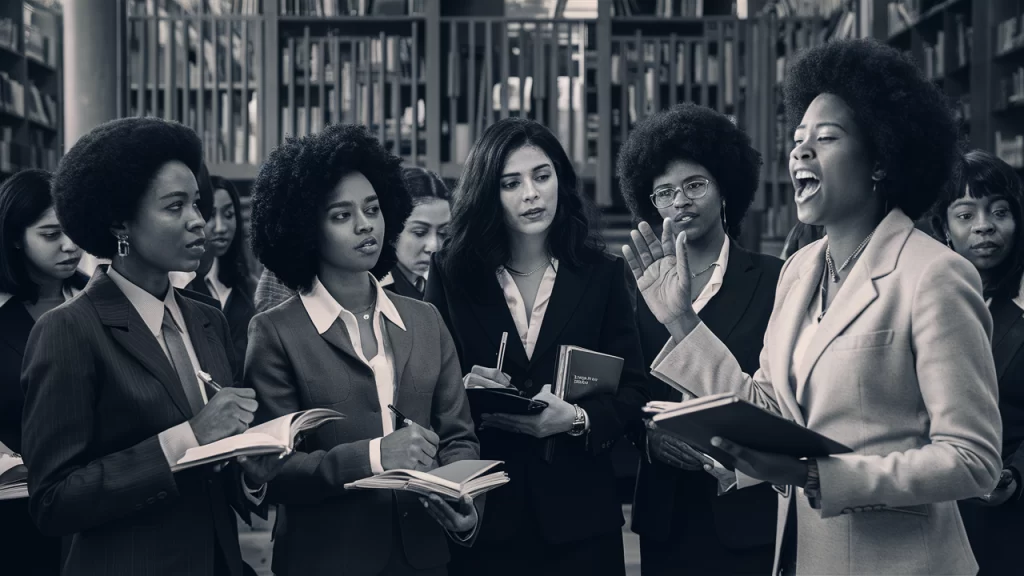The Negro Woman’s College Education: Inspiring Powerful Change
Education has always been a cornerstone for empowerment, especially for marginalized communities. The story of the Negro woman’s college education is one of resilience, determination, and a relentless pursuit of equality. This journey has not only changed the lives of individual women but has also brought about powerful social change. In this article, we will explore the history, challenges, and significant impacts of the Negro woman’s college education. We will also highlight how this education continues to inspire powerful change in society today.
The Historical Struggle for Education

Early Barriers to Education
For many years, education was a privilege reserved for the few, often excluding African Americans, especially women. The systemic racism and sexism prevalent in society made it nearly impossible for Negro women to access higher education.
Legal and Social Obstacles
During the 19th and early 20th centuries, laws in many states prohibited African Americans from attending schools alongside white students. This segregation extended to higher education, where few institutions were open to Black students and even fewer to Black women. Social norms also dictated that women, especially Negro women, should focus on domestic roles rather than pursuing higher education.
The Founding of Historically Black Colleges and Universities (HBCUs)
The establishment of Historically Black Colleges and Universities (HBCUs) was a turning point in the fight for education. These institutions provided the first opportunities for Negro women to pursue higher education.
Role of HBCUs in Empowering Negro Women
HBCUs like Spelman College, founded in 1881, played a crucial role in educating Negro women. These institutions not only provided academic knowledge but also fostered a sense of community, self-worth, and leadership. For many Negro women, attending an HBCU was the first step towards breaking the barriers that society had placed before them.
Challenges Faced by Negro Women in Higher Education

Financial Hurdles
One of the most significant challenges faced by Negro women seeking college education was financial. Many came from families with limited means, and scholarships or financial aid opportunities were scarce.
Overcoming Economic Disadvantages
Despite these financial barriers, many Negro women found ways to fund their education through work-study programs, community support, and sheer determination. The sacrifice of these women laid the groundwork for future generations to pursue higher education.
Racial and Gender Discrimination
Even after gaining access to higher education, Negro women faced ongoing racial and gender discrimination. They were often the only women of color in their classes and faced isolation, prejudice, and doubt about their abilities.
Resilience in the Face of Adversity
Despite these challenges, Negro women persevered. Their resilience not only allowed them to succeed academically but also to pave the way for future generations of Black women to follow in their footsteps.
The Impact of Education on Social Change
Empowering Negro Women
The education of Negro women has had a profound impact on their communities and society at large. Educated Negro women have become leaders, educators, and advocates for change.
Leadership and Advocacy
Many Negro women who received a college education went on to become influential leaders in the civil rights movement, education, healthcare, and politics. Their education empowered them to speak out against injustice and work towards a more equitable society.
Changing Perceptions and Breaking Stereotypes
The success of Negro women in higher education has also played a crucial role in changing societal perceptions and breaking down harmful stereotypes.
Redefining the Role of Negro Women
Through their academic achievements and professional successes, educated Negro women have redefined what it means to be a Black woman in America. They have shown that they are capable, intelligent, and deserving of the same opportunities as anyone else.
Also Read: US Public Education System History: Uncover Shocking Truths and Triumphs
The Continuing Legacy of Negro Women’s Education
Modern Challenges and Opportunities
While significant progress has been made, Negro women still face challenges in higher education today, including economic disparities and systemic racism.
Scholarships and Support Networks
Fortunately, there are more resources available today to support Negro women in their pursuit of higher education. Scholarships, mentorship programs, and support networks have been established to help these women succeed in college and beyond.
The Role of Education in Today’s Social Movements
Education continues to be a powerful tool for social change, particularly for Negro women who are at the forefront of today’s social movements.
Educated Women Leading the Way
Today, educated Negro women are leading the charge in movements for racial justice, gender equality, and economic empowerment. Their education has equipped them with the knowledge and skills necessary to drive change in their communities and beyond.
The story of the Negro woman’s college education is one of inspiration, resilience, and powerful change. From overcoming early barriers to establishing themselves as leaders in society, educated Negro women have made significant contributions to their communities and the world.
The journey of the Negro woman in higher education is a testament to the transformative power of education. It has not only empowered individual women but has also inspired powerful social change that continues to shape our world today. As we look to the future, it is clear that the legacy of Negro women’s education will continue to inspire and lead the way toward a more just and equitable society.
Whether you are a student, educator, or simply someone interested in the power of education, the story of the Negro woman’s college education serves as a reminder of the importance of access to education for all. It shows us that through education, we can overcome obstacles, redefine societal roles, and inspire change for generations to come.



